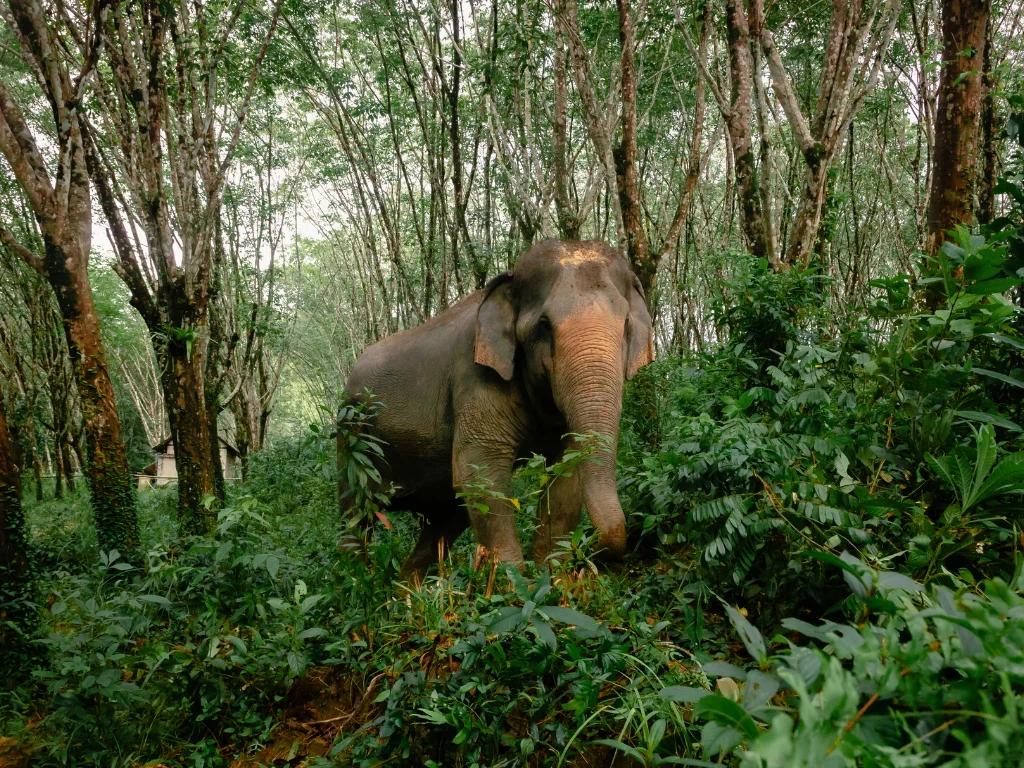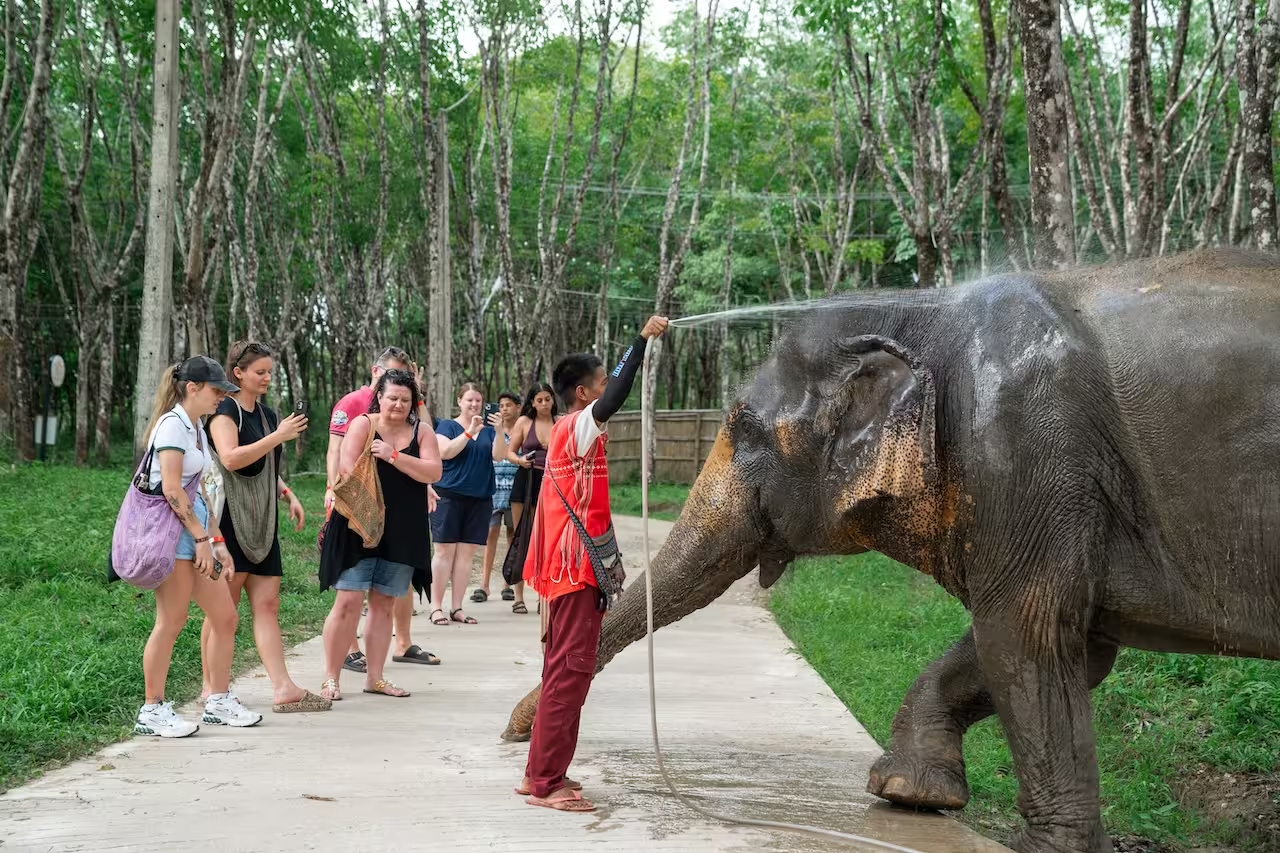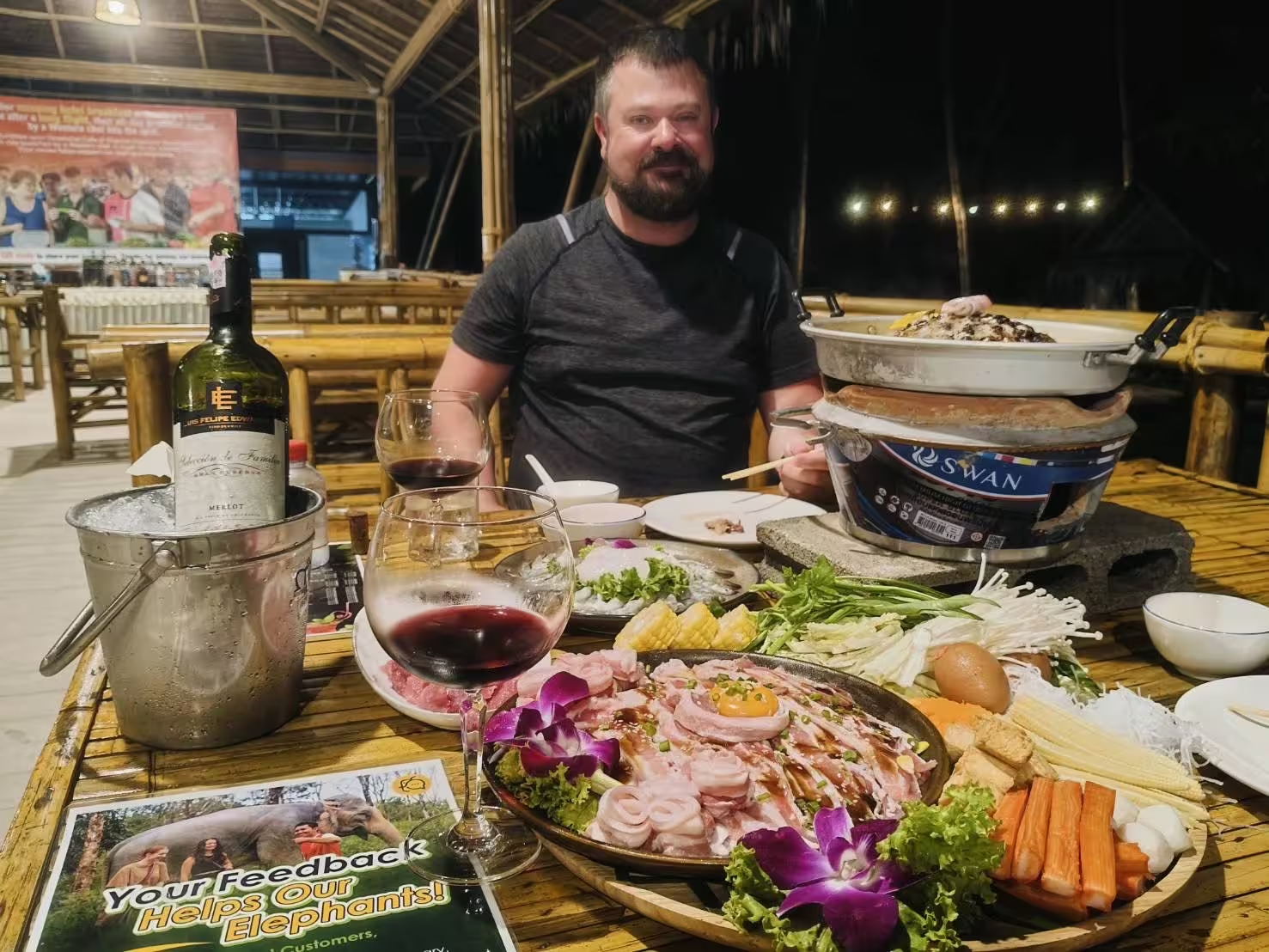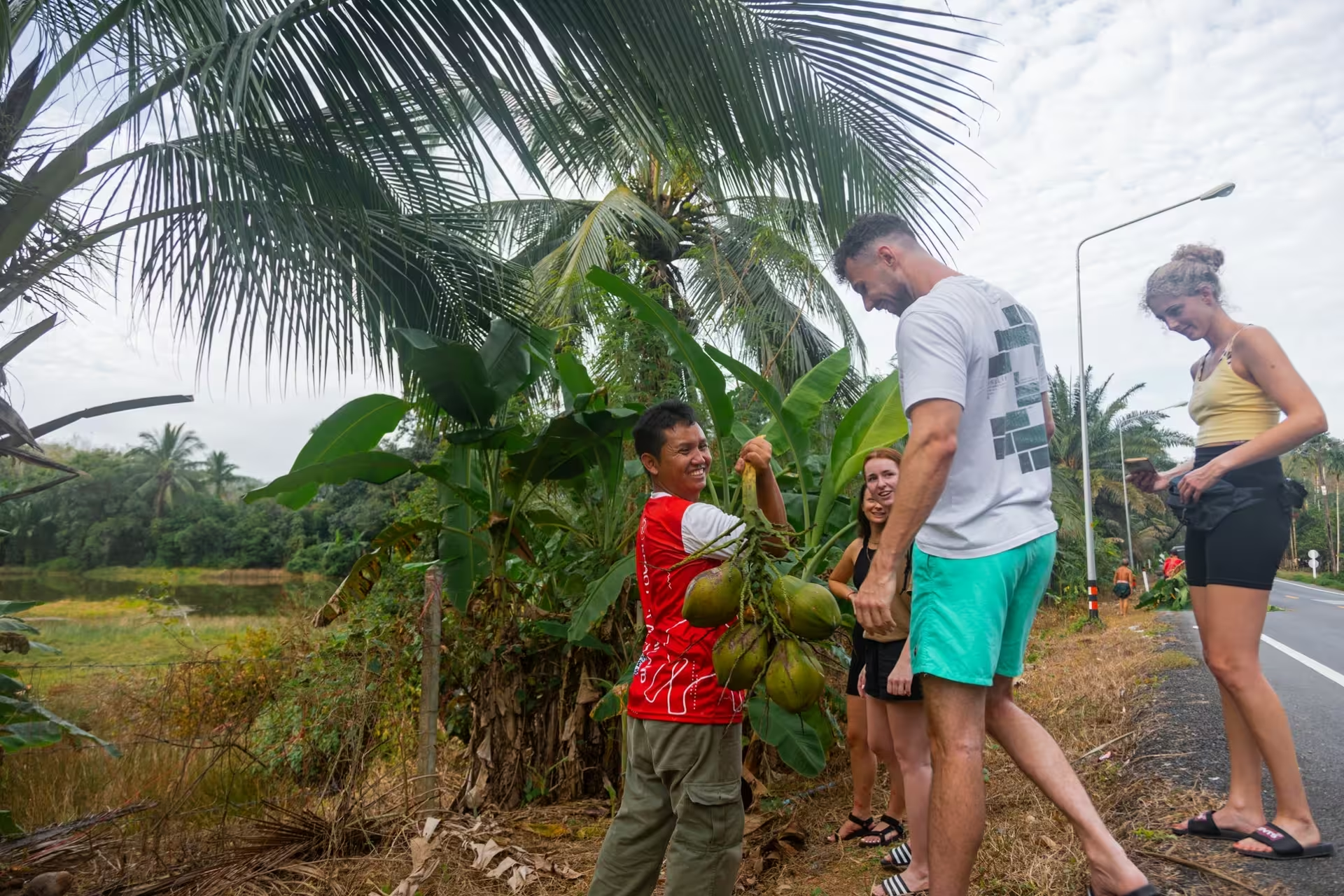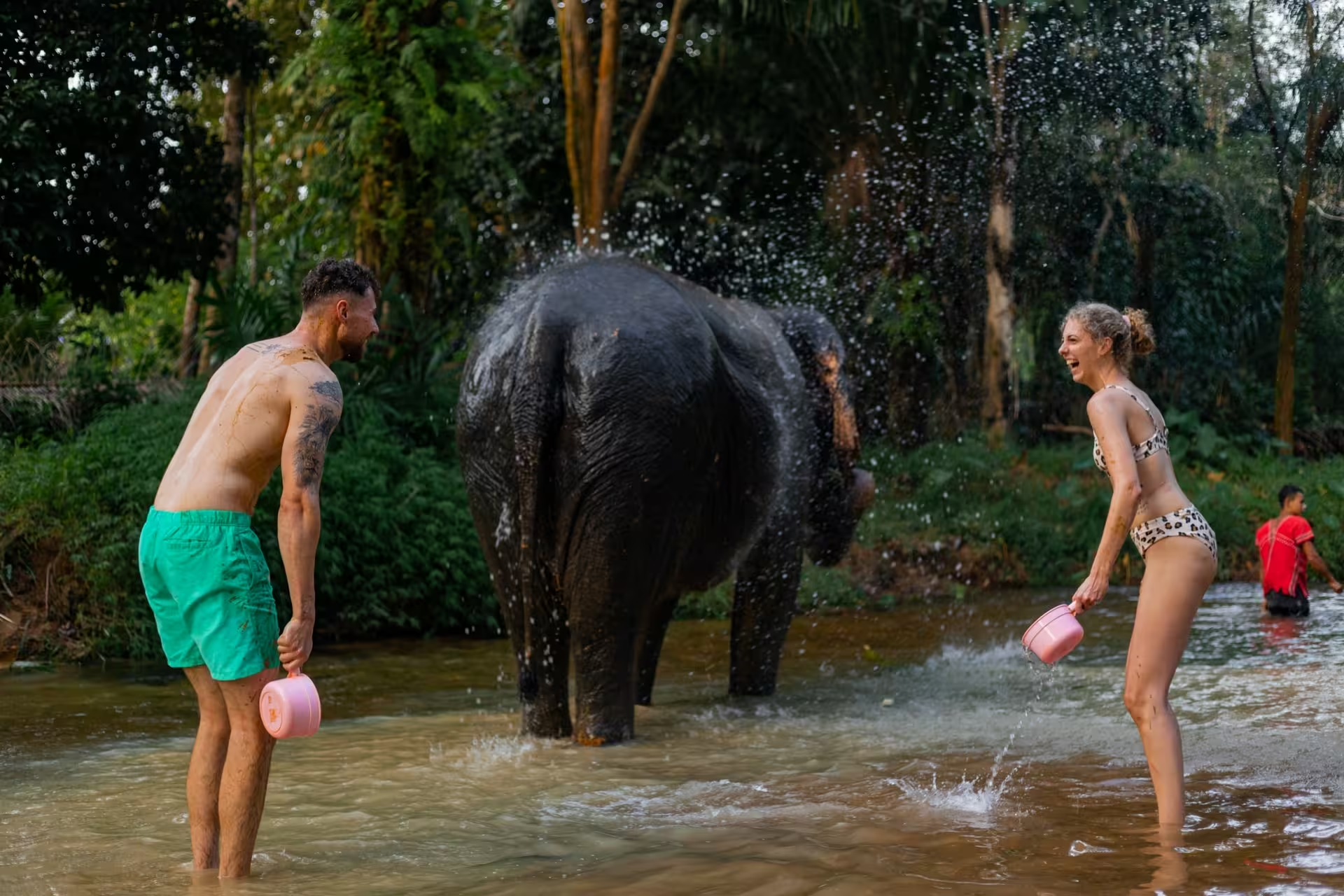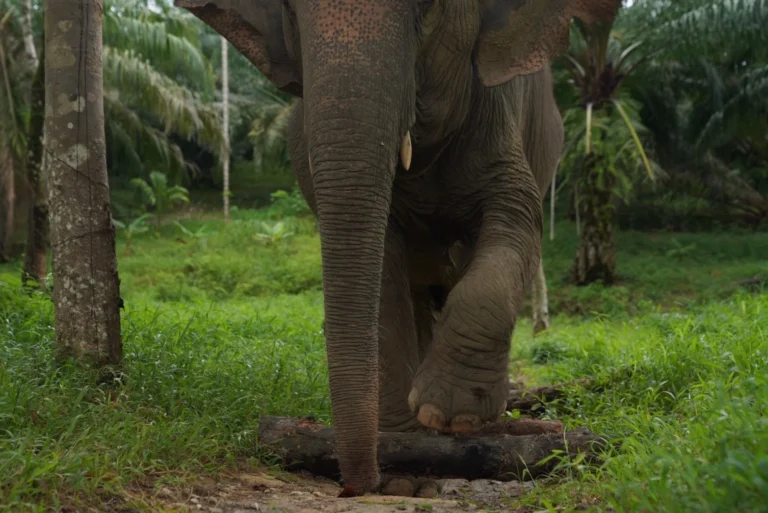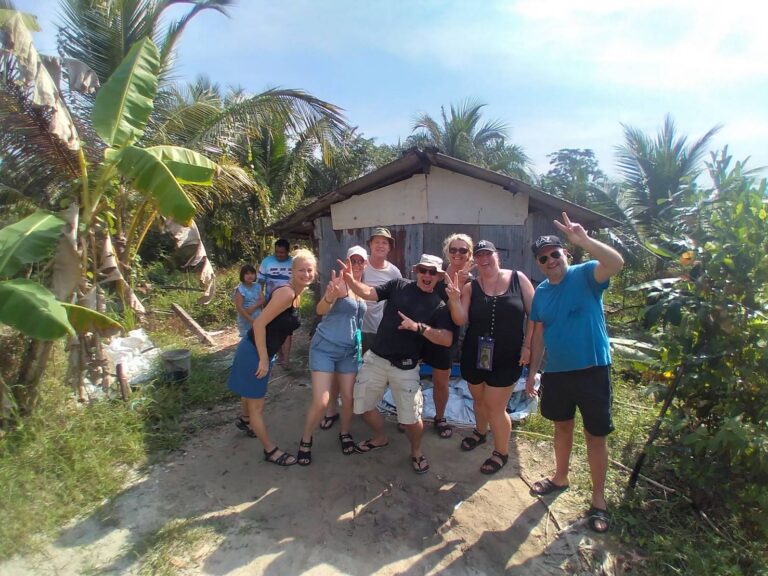What This Award Means
In a country filled with “elephant experiences,” travelers often ask: Which sanctuaries are truly ethical? The Responsible Tourism Award answers that question. It acknowledges places where welfare standards are real, transparent, and practiced daily — not just promised on a brochure.
What Is Responsible Tourism?
- For elephants: no riding, no performances, no forced feeding or bathing.
- For people: fair local jobs, local sourcing, respectful group sizes, and education.
- For place: low-impact operations that protect habitat and culture.
“Responsible travel is simple: reduce harm, increase benefit. For elephants, that means freedom from performance. For communities, it means tourism that pays living wages and buys local.”
Why We Were Recognized
At Khaolak Elephant Sanctuary, elephants set the pace. They decide when to forage, dust, or bathe — we observe from respectful distances. We also limit each program to just 5 guests, maintaining a calm atmosphere for the herd and a deeper experience for you. Our 20-person team is hired locally in Khao Lak, and the elephants’ diet — bananas, grass, sugarcane — is purchased from local farmers. Your visit circulates income inside the community.
A Day at the Sanctuary (What You’ll See)
Mornings often begin with quiet foraging along forest edges. By late morning, you may see gentle trunk-to-trunk greetings or playful splashes when the herd chooses water. In the afternoon, mud wallows become natural sunscreen and skin care. None of this is scheduled for tourists — it’s simply elephants being elephants.
Why This Matters for Travelers
If you’re choosing where to visit, your booking is a vote. By supporting observation-led sanctuaries, you help move the industry away from exploitation. Independent recognition gives you confidence that your money supports real welfare and real community benefit — not shows dressed as conservation.
Beyond the Trophy: Our Ongoing Commitments
- Since 2025: no guest feeding programs — to protect natural behaviors and reduce dependency.
- Small groups only: max 5 guests per program to minimize stress and noise.
- Community first: local employment and farmer partnerships for elephant food supply.
- Education: clear briefings, welfare science, and upcoming Elephant Protector Museum.
For the Photo, For the Memory — Not at the Elephant’s Expense
You’ll still get incredible photos — silhouettes at sunset, mud-flecked smiles, trunks pulling down banana trees — but the best souvenir is knowing your presence didn’t force a performance. That’s the heart of responsible travel.

